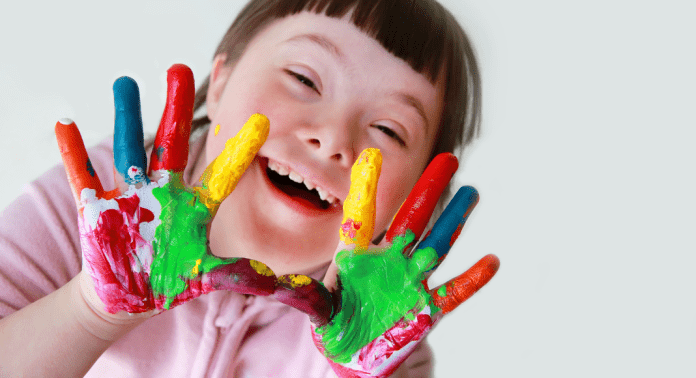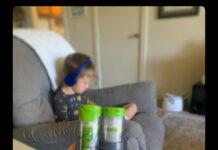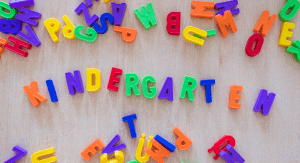
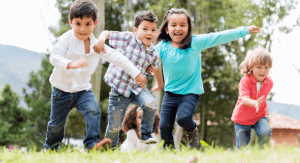
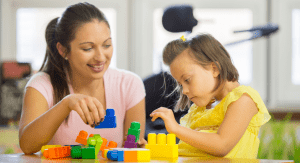
Although the school year has come to a close for most students, the anticipation of one particular grade level is alive and well! Sending a Kindergartener off on their first day can be scary, nerve racking and downright emotional for many families – especially moms! For some, they can’t bear the thought that their once tiny toddler is ready to hop, skip and jump into the next 13 years of learning. For others, it is opening the gates to an abundance of time, tremendous savings in childcare and a call to freedom that they have been yearning for. The Kindergarten transition can also be intense, has to be meticulously planned out and even traumatic for those with special needs. As a Kindergarten teacher, I saw all kinds of first day reactions from parents, caretakers, grandparents and students. As a teacher, I always wondered how it would feel to be on the other side of the door letting my little fledgling fly instead of being the one to welcome them with a smile…or bring them in screaming their head off! I experienced it for the first time two years ago and get to experience it for the last time next fall. I’m sure I’ll shed some tears and my little one may play shy, but I can say without reservations that she (and I!) is ready for this! The amount of learning that takes place in the first “official” year of school is nothing short of incredible! And sending your Kindergartener off with just a few foundational skills will help give them a little extra boost of confidence as they embark on their educational journey!
There are a lot of articles out there explaining that the more your Kindergartener knows before they go to school the higher success they will have. While there is some truth to that and a great start is what we are all aiming for, no one’s child needs to be an academic (or social!) whiz prior to setting foot in their first classroom. It is also important to note that, while your child may be well prepared academically, a Kindergartener spends a huge amount of time learning social and emotional skills. Some kids may thrive in one area but may need extra guidance and practice in another.
As a Literacy Specialist and educator for the past 19 years, here are the top 3 things I encourage you to focus on with your beginning learner this summer:
- Exposure, exposure, exposure! Simply exposing your child to letters and numbers will help them gain an understanding of how letters and numbers carry meaning. Surrounding a child with books does not make them a great reader! It is the understanding and ability to make connections that create a great reader. When your child has mastered letter names and their sounds, he is ready to dive deeper into reading. If a child cannot make a correlation between letters and sounds quickly and easily, building literacy skills can become challenging. You can use flashcards, magnetic letters, items that start with specific letters or even download materials from the web. You can find a ton of FREE resources to help teach letters and sounds at Teachers Pay Teachers. My one rule for teaching letters and sounds is to not teach them alphabetically! Mix them up so you know your child recognizes letters even when they are out of order.
- Recognizing their name. Your child’s name is going to be on anything and everything in their classroom! The confidence boost that a Kindergartener gets when they can find their own name tag, cubby, folder, pencil case, and read their name on posters around the room is the same feeling you get when your name pops up on the list of high scores on Candy Crush! Practice having your child write their name and randomly place it in areas around the house. You can even build their name with alphabet blocks, cut up the letters in their name and have them unscramble it, practice writing their name in sand or tracing it on different textures.
- Going to the bathroom independently – this includes getting on or aiming in the toilet, wiping (#1 AND #2), redressing AND washing their hands while humming the ABC’s or singing “Happy Birthday” to themselves at least two times. Teachers and other adults are not allowed to enter the restroom with a student unless there is an emergency. There is also a limited amount of time for restroom breaks throughout the day, so try to encourage your child to do their business as quickly as possible. This will make the bathroom experience a whole lot more comfortable and sanitary for everyone!
Bonus – PLAY and read! As Fred Donaldson once said, “Children learn as they play: most importantly, in play, children learn how to learn.” Play is the keeper of imagination, discovery, exploration and curiosity. It is essential for children, teens and adults to allow themselves the freedom to learn in a less restricted and structured environment. Play based learning has proven to be one of, if not the most, effective way children learn. Don’t overthink it! Just dive in and do it! Play also allows you to intentionally connect with your child even if it is just for a few moments each day.
That’s it! The summer before Kindergarten is not a time to be stressed out. It is a time to play, allowing your child to socialize and to be a kid enjoying their summer break. If you would like more tips and skills to work on, check out my podcast “Talk with Erin Stock” and click on Kindergarten Readiness.


